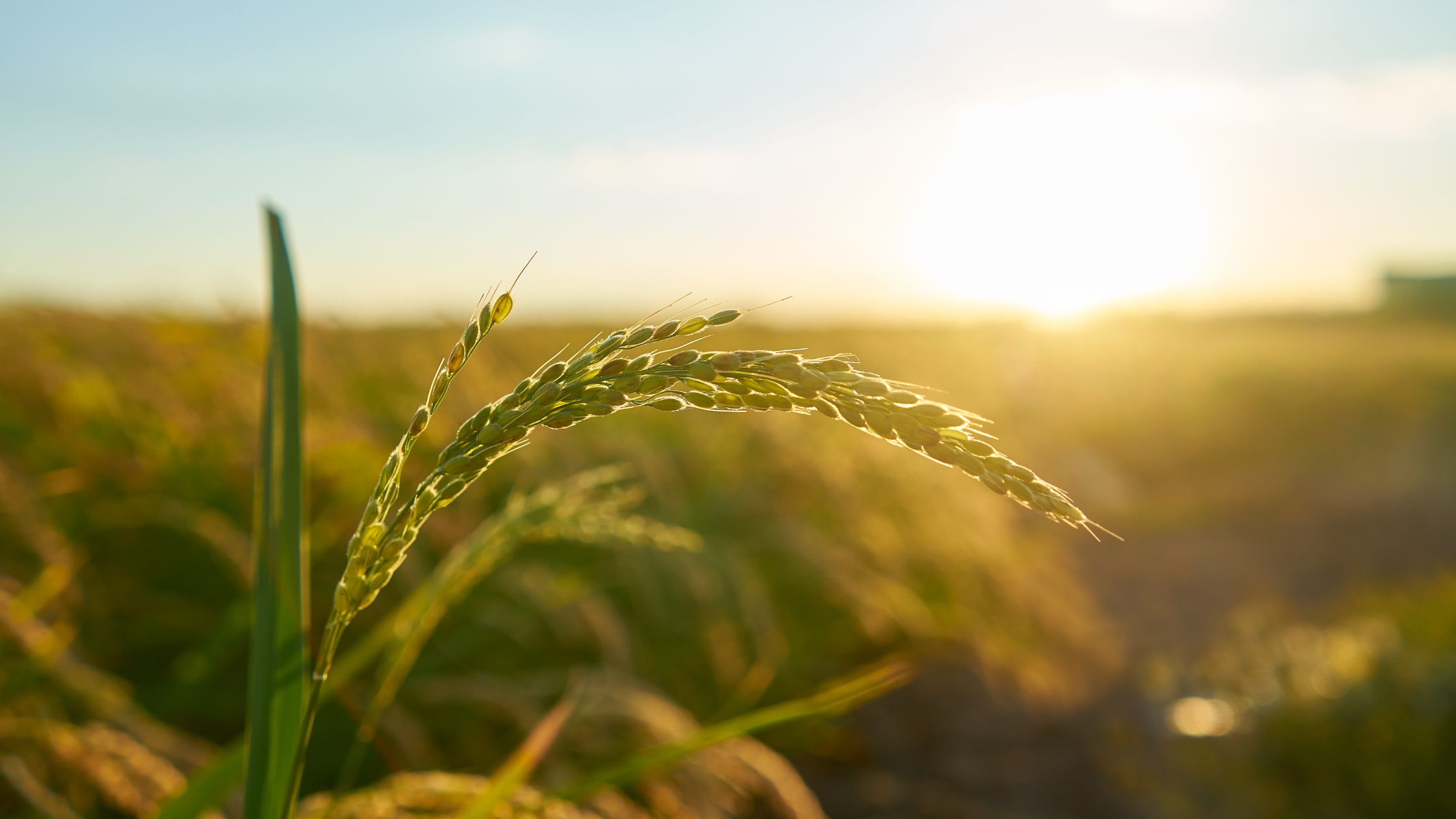As a farm or agri-based business owner, you might find yourself eventually needing additional capital — some extra money you can use to upgrade machinery or buy new land, or even expand your operations or fill seasonal cash flow gaps.
And if you’re just starting, you’ll likely need a significant amount of funding to get things off the ground.
The good news is that there are several financing options available to you, ranging from federal programs to private business loans.
The right choice really depends on your farm’s size and your credit score(min. credit score: 680), but it’s also important to consider any available collateral and how long you’ve been operating. To know more about the importance of credit scores for the agriculture business.
How do agricultural loans work?
Agricultural loans work much like small business loans, except that they’re tailored to the farming sector’s unique needs.
They can be roughly classified into two broad categories: government-backed and private/commercial. Understand how agricultural loans can help farmers grow.
Each loan type serves a specific purpose, so knowing when and how to use them is essential.
You can use government-backed farm loans to start and expand a farm. They typically work like term loans, where you receive a lump sum upfront and repay it over 10 to 40 years with interest through fixed monthly installments.
Commercial farm loans from banks and private lenders operate similarly, but they involve higher down payments and shorter repayment timelines.
You might even encounter slightly higher interest rates.
That said, these lenders often have more solutions to offer, including business lines of credit and equipment loans, as well as invoice factoring options.
Also Read About: The Future of Farmland: 2025 Outlook
How agri loans differ from typical business loans
While general business loans can support various ventures, they don’t always meet the unique demands of your farm’s operations.
The USDA’s Farm Services Agency offers several loan programs specifically designed for that — covering everything from start-up assistance to operational expansion.
Some commercial lenders also offer agriculture-focused loans that have a similar structure to standard business loans. However, their solutions are tailored to the seasonality and long-term nature of farming.
So, while you can get traditional business loans, it may be wiser to take out specialized agri loans that offer more relevant terms and repayment structures.
Also Read About: The Impact of Trump’s Tariffs on Agricultural Loan Markets
Plus, you can benefit from the tailored support suited to your agricultural operations.
Do you need funding for a small agri business? You’ll find several types of loans that are worth considering.
Each one caters to different financial needs, from buying equipment to managing short-term cash flow, so it’s important to pay attention to how they can benefit your business.
Read About: Essential Criteria for Securing an Agricultural Mortgage Loan
Types of government-backed agricultural business loans
1. USDA farm loans
The USDA FSA offers multiple loan programs designed to support agricultural operations, including farms and ranches. Here are some USDA Grants for your farm.
These programs offer access to affordable financing, whether you’re a new or established farmer:
1.1 Microloans
Microloans are smaller loans of up to $50,000 each.
Some programs allow you to take out two separate loans — one for buying land and another for equipment or operating costs — for a combined total of $100,000.
With these loans, you can jump-start a new farm or manage existing small-scale operations.
Read More About: Why Invest in Agriculture?
1.2 Operating loans
Offering up to $400,000 in funding, the FSA Direct Farm Operating Loan Program can help you start or maintain a farm or ranch.
Additionally, you can use the funds to buy livestock or cover day-to-day expenses, among other purposes.
And with down payments as low as 5% and fixed, low interest rates, you’ll find this program affordable and helpful in keeping your agri business afloat.
1.3 Guaranteed farm loans
Do you prefer to work with private lenders? The FSA’s Guaranteed Farm Loan Program can provide an extra layer of security.
Under this arrangement, the FSA guarantees a significant portion of the loan, making you less risky in the eyes of commercial lenders.
This approach helps you access financing that might otherwise be out of reach.
2. SBA loans
Small Business Administration loans are another strong option when you need long-term, low-cost financing. These loans are government-backed, meaning the SBA guarantees a portion of the loan to reduce the lender’s risk.
While the SBA doesn’t have farm-specific programs, its loans can still support your agri business with competitive interest rates and long repayment terms (up to 25 years). Additionally, the funding is significantly larger than conventional loans.
That said, SBA loans come with strict qualification standards and a lengthy application process, sometimes taking several months from start to finish. You’re more likely to qualify when your agri business has strong credit and detailed financial documentation.
Read About: How to Qualify for Agriculture Loan?
Types of private agricultural business loans
1. Long-term farm loans
You can get long-term loans from banks and other financial institutions, with typical repayment periods ranging from two to 25 years.
You can use the proceeds to fund anything on your farm, from buying livestock or equipment to maintaining working capital.
When you choose this loan, you will receive the full loan amount upfront and make fixed monthly payments determined by the amount and term, as well as the interest rate.
Expect lenders to look for strong credit and solid financials. You probably need at least two years of business history to qualify.
2. Short-term agri business loans
A short-term loan can be an excellent solution for quick funding needs or when traditional lenders turn you down.
Offered by private and alternative lenders (sometimes online), these loans provide a lump sum that you can typically repay within six to 18 months through daily or weekly payments, as well as monthly installments. Hard money loans for agri business can be helpful for farmers.
One major advantage is that you can get the funding within 24 hours.
These loans can help you cover seasonal revenue gaps or emergency repairs. During peak demand periods, you can use these loans to manage working capital.
Of course, this convenience also means higher interest rates and fees. That’s why they only work for short-duration needs where quick access to funds outweighs the added expense.
3. Business lines of credit for farms
A business line of credit is a flexible financing option when you’re not sure exactly how much money you’ll need throughout the year.
It works much like a credit card where you’re approved for a credit limit and can withdraw funds whenever necessary, up to that limit.
With a commercial line of credit, you only pay interest on the amount you use instead of the entire credit limit.
That makes it an attractive option for smoothing out seasonal cash flow fluctuations or covering short-term expenses without committing to a full-term loan.
This flexibility makes it a valuable tool for managing your farm’s ongoing operations.
4. Equipment loans
You can take out equipment loans to finance any kind of farm equipment or machinery, from tractors and harvesters to irrigation systems and vehicles. In most cases, the equipment itself becomes the collateral, meaning you don’t have to provide additional security.
Another advantage is that the repayment terms often match the equipment’s useful lifespan.
For example, if the machine is expected to last 15 years, your repayment term may extend over a similar period.
This structure allows you to spread costs evenly over time while ensuring that you can repay the loan as the equipment generates value.
5. Invoice factoring
Does your farm extend credit to buyers or distributors? Invoice factoring can help unlock cash that’s tied up in unpaid invoices.
This financing method involves selling your outstanding invoices to a third-party lender.
The lender advances most of the invoice amount immediately and collects payment from your customers.
From there, they will send you the remaining balance, minus a small factoring fee. The loan is based on accounts receivable, so your credit score or collateral isn’t a major concern.
However, invoice factoring can be more expensive than other financing methods due to higher fees. Still, it can be an effective way to maintain liquidity when you’re waiting on customer payments.
6. Business credit cards
A business credit card can be a practical financial backup for your farm. It offers quick access to funds for purchasing supplies and covering operating costs or emergencies, without waiting for loan approval.
It’s possible to find cards with low interest rates or even 0% introductory APRs lasting up to 21 months. This allows you to manage short-term expenses strategically — by charging a major cost now and paying it off before regular interest applies.
When used responsibly, business credit cards can help you maintain cash flow flexibility and build your farm’s credit profile over time.
Find out what private lending solutions are available for your farm
Access to capital is essential for maintaining or launching a successful agri business.
You need to find a solution that fits your business size and goals, whether you choose a government-backed farm loan or one of our solutions.
We’re committed to helping you access the right financing solutions here at Private Capital Investors.
With our agriculture land loans, you can purchase property and expand your farming operations, even develop essential infrastructure.
We offer:
- Flexible repayment plans
- Competitive interest rates
- Tailored loan amounts based on your financial goals
Tell us about your needs by calling us at 972-865-6206 or sending a message to info@privatecapitalinvestors.com.





